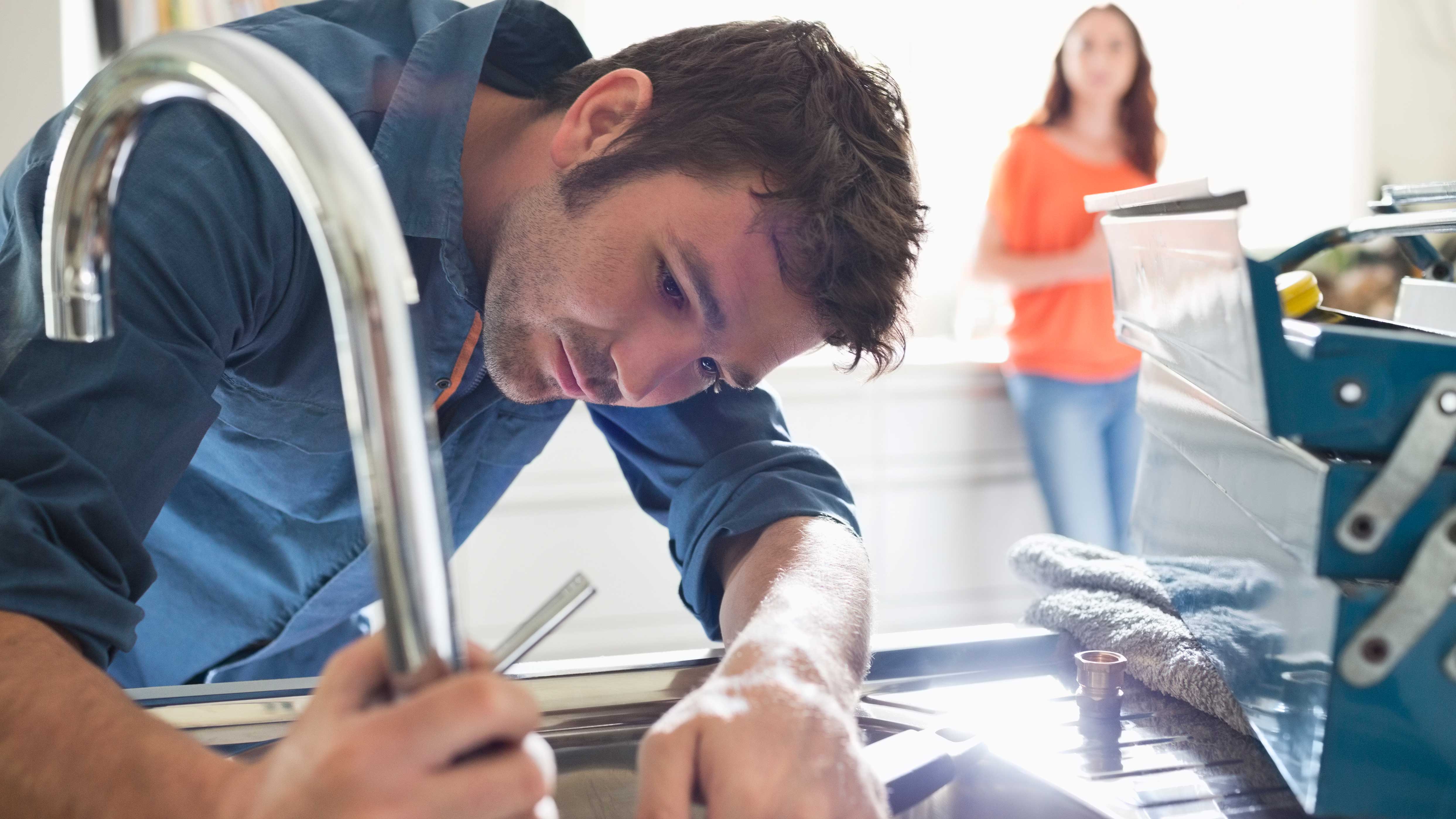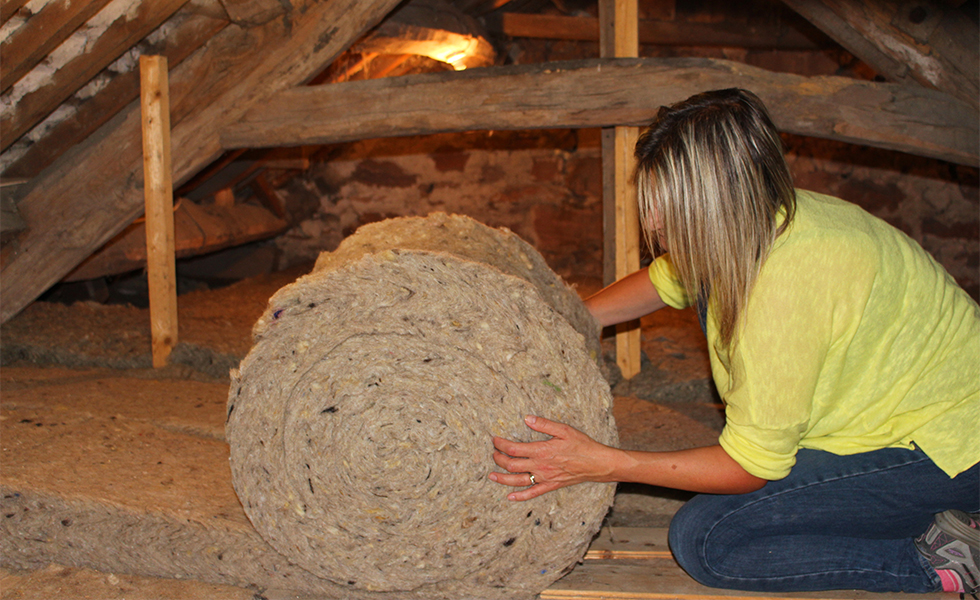10 ways you could decrease your home's value
No one wants to do work that could decrease a home's value, but you'd be surprised at what might damage its value. Learn what not to do to avoid having to sell for less with our expert advice

Get small space home decor ideas, celeb inspiration, DIY tips and more, straight to your inbox!
You are now subscribed
Your newsletter sign-up was successful
Believe it or not, there are many ways you could decrease your home's value. And while most of us are aware of the major factors affecting the price of a home – location, overall condition, transport links and school catchment areas – some of us may overlook the smaller details that could well decrease the value of the house and steer away a potential buyer.
So, what not to do to, so that you can safely sell your home for the best possible price in the future? Follow our expert advice on what to avoid.
For more practical advice, check out our guide to selling your house or flat.
1. Don't install a pool
While a swimming pool sounds like a luxurious and enticing home feature, surprisingly, it can also be a deterrent for home buyers. 'Some buyers can be reluctant to purchase property with pools or other water features as they consider them unnecessary added expenses and extra maintenance required on the home. People with small children may also consider the pool a dangerous element to the property. If the pool is badly maintained or in disrepair, then this will also have a negative impact on the value of your home.'
2. Don't get rid of a bedroom
Getting rid of bedroom has also been cited as a sure way to decrease the value of your home. Castle cautions against the temptation to make too many alterations to your home, such as merging two bedrooms into one of replacing a bedroom with a bathroom. 'The more bedrooms your home has, the higher the price it can command. Listing prices are set by looking at how other similar homes are selling for in the same market, and the number of bedrooms is an important characteristic used to compare two properties, so when you start eliminating bedrooms, essentially, you’re changing the comparable value of your home.
3. Don't DIY if you can't DIY
Poorly executed renovations also ranked highly on the list of reasons homebuyers found some properties less attractive than others. Only undertake renovations yourself if you are an experienced DIYer; and if you are hiring a professional to do it, always check their credentials first.
Find out more about the jobs that you think may be able to tackle yourself at our DIY hub page.
Get small space home decor ideas, celeb inspiration, DIY tips and more, straight to your inbox!

4. Don't let pets run amok
A home may lose some of its value due to smelly pets and the damage they can do to a property. Castle stresses that this doesn't mean that you'll have to get rid of your beloved pets – but you will need to take extra care of your home, and conceal the presence of animals from potential buyers. 'Make a conscious effort to keep on top of any damage that pets may cause, paying close attention to their hygiene and odour by providing frequent baths. Also ensure that they are completely out of the way when hosting viewings, remove their bowls, beds, toys from sight. The less of a pet a buyer sees in your home the better!'
Need to clear up the mess left by your pets before house viewings? We have the best ways to clean up after cats and the best ways to clean up after dogs.
5. Don't let relationships with neighbours deteriorate
Unruly pets have nothing on unruly neighbours, however. A rude, antisocial neighbour who loves to do noisy DIY on a Saturday morning? You could be in for trouble when it comes to selling your property. 'Bad neighbours have the potential to knock tens of thousands of pounds off your home’s value. The difficulty is that by law you should disclose any issues that you’ve had with your neighbours to any potential buyers which can make selling your property challenging.
If the issue is behavioural then it is harder to solve, but if the issue is in your neighbour’s property appearance then there are ways that you can attempt to manage this. Communicating with your neighbour about home improvements would be the first step, calmly explaining the situation may work in your favour. Your neighbour may not realise the damage that they are doing to their own property’s value, together you may be able to come to an agreement that will work for you both.'
6. Do keep garden ornaments to a minimum
You might love garden gnomes and statues of meercats, but many people find 'cute' garden ornaments off-putting. It's best to remove your garden ornaments during viewings. Another common buyer deterrent is a personalised pet grave at the bottom of your garden – as meaningful as it is to you, potential buyers might find Fluffy's grave a bit creepy, so it's best to get rid of any gravestones/markers.
7. Do reign in your decorating style
While home decor is a form of expressing of our individuality, it's good to keep things fairly neutral in the lead up to a house sale. Bold colours, clashing wallpaper patterns, and black curtains are among things that have been reported to reduce the value of a home in buyers' eyes. So, if in doubt, stick to neutrals and naturals.
8. Do make your home more energy efficient
A savvy buyer will quickly identify the lack of energy efficiency as money lost in higher energy bills once they've moved in. Lack of loft insulation, draughty windows, and even an old boiler could potentially knock off value from your property, so it's best to make your home more energy efficient before putting it on the market.

9. Do keep invasive plant species out of your garden
Some plants, especially rare and mature trees such as magnolia, can add thousands in value to your home; others, however, can decrease it. Among plant species that can reduce the value of your home are willow trees, which can invade drainage and pipe work, while oak trees may cause subsidence by sucking up too much moisture from the soil around the house.
Far more serious is the presence of Japanese Knotweed in your garden; this highly invasive and fast-growing weed has to be eradicated from your garden by law, before you sell. Failure to disclose the presence of the plant in your garden could lead to incurring costs for removal after the sale and even a misrepresentation claim from the buyer.
Find out how to get rid of Japanese Knotweed in our guide.
10. Do de-clutter before putting your home up for sale
A messy bedroom could reduce the value of your house by as much as £8,000, so it's very important to do a proper clean and de-clutter before showing your property to potential buyers. If you don't have the time or energy to do it yourself, hire a professional cleaner. Hallways, living rooms, and children' room will need particular attention.
Discover the 25 decluttering jobs you must do if you want to sell your home.
More on selling your home:
- How to choose an estate agent
- Marie Kondo tidying up – top tips for decluttering your home
Anna is a professional writer with many years of experience. She has a passion for contemporary home decor and gardening. She covers a range of topics, from practical advice to interior and garden design.